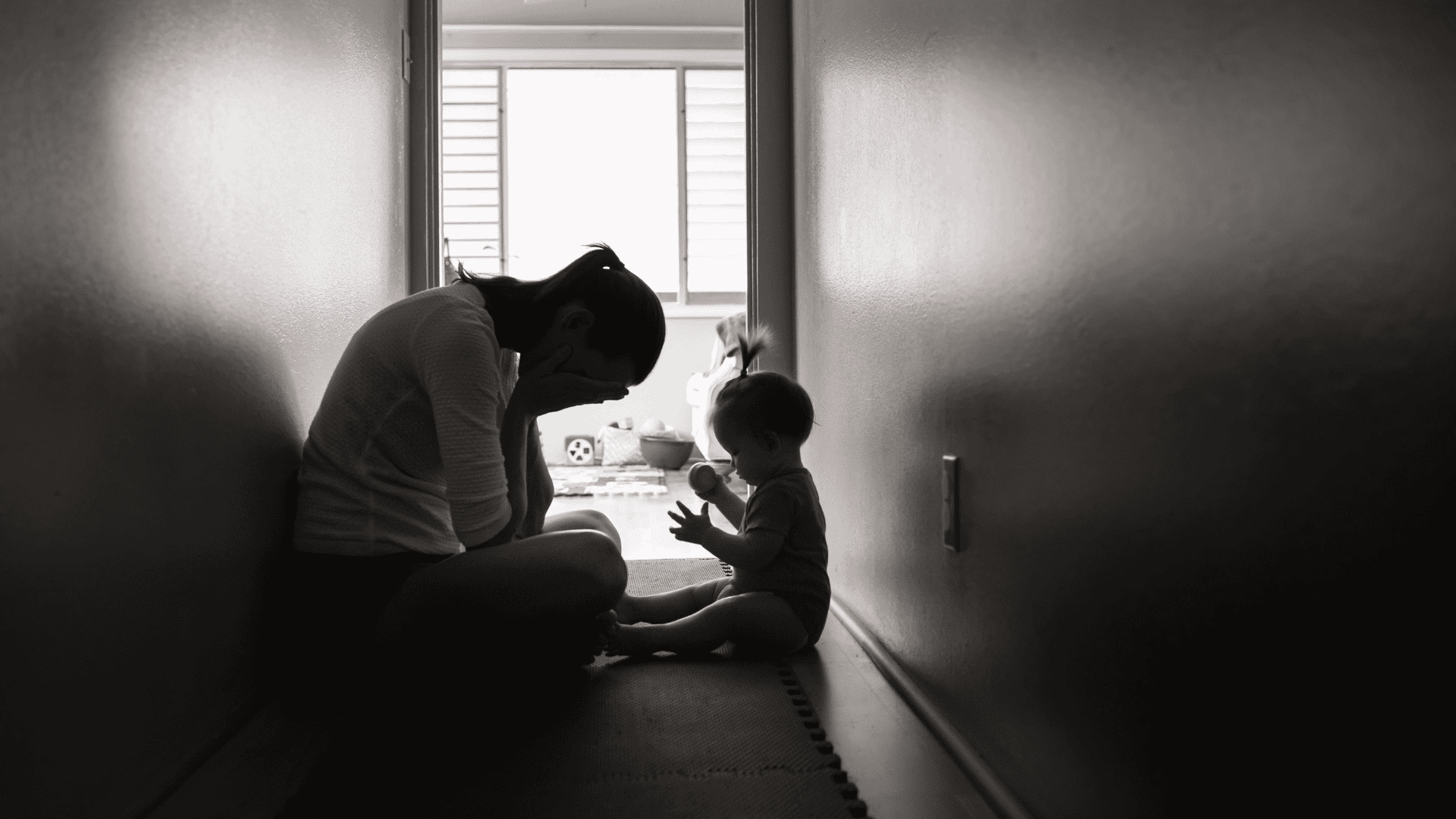Table of Contents
ToggleParenting is often described as one of life’s greatest journeys, filled with moments of indescribable joy, profound connection, and growth. Yet, beneath the smiles captured in family photos and the milestones celebrated in social gatherings, lies an invisible battle that many parents fight in silence; the struggle to maintain their mental and emotional health while navigating the immense responsibilities of raising a child.
As the creator of the Professional Coaching Mastery Certification Encompassing Child/Adolescent Development and Parenting (CADP) Coaching Education Specialization, I have witnessed firsthand the intricate interplay between a parent’s inner world and a child’s growth. Let us explore this vital topic with thoughtfulness, compassion, and the aim to empower.
The Invisible Thread: The Parent-Child Connection
A parent’s mental and emotional health serves as an invisible thread weaving through every aspect of their child’s life. Yet, this is an unspoken truth that often goes unnoticed amid societal expectations of what parenting should look like. Parents are often held to unrealistic standards of perfection, to always have the right answers, maintain unshakable patience, and seamlessly balance work, home, and personal growth. Added to this are unsolicited pieces of advice and cookie-cutter parenting methods that fail to address the unique dynamics of each family.
However, research highlights this unacknowledged reality. According to the World Health Organization (WHO), up to 15% of mothers experience postpartum depression globally, and the National Institute of Mental Health (NIMH) estimates that a significant portion of parental mental health conditions go undiagnosed. Furthermore, data from the American Academy of Child & Adolescent Psychiatry (AACAP) reveals that children of parents with untreated mental health conditions are significantly more likely to experience behavioral, emotional, and academic challenges.
Parenting is a challenging responsibility that demands one’s attention and commitment 24/7. The impact of these struggles often ripples through family dynamics, communication patterns, and the emotional climate of the home, sometimes subtly, other times in ways that are impossible to ignore.
The Science Behind the Impact
Children are sponges for their parents’ emotional states. Neurobiological studies reveal that a parent’s stress can affect a child’s developing brain. Elevated cortisol levels in parents, for example, can lead to heightened stress responses in children, influencing their ability to regulate emotions and cope with challenges.
The Attachment Theory, pioneered by John Bowlby, provides another lens through which we understand this phenomenon. A parent’s emotional availability lays the foundation for secure attachment, fostering resilience, confidence, and emotional intelligence in their child. Conversely, chronic stress, unresolved trauma, or emotional unavailability can hinder the development of this secure bond.
How do Common Everyday Situations Reflect Parental Mental Health?
Seemingly normal family situations often reveal the subtle effects on a parent’s mental and emotional health:
- Dinner Table Disconnections: A parent overwhelmed by work stress may seem disengaged during family meals. This lack of presence can leave children feeling unimportant or unheard, impacting their self-esteem.
- Overreacting to Minor Incidents: A parent struggling with unresolved anxiety might respond with disproportionate anger when a child spills a drink, inadvertently teaching the child to fear mistakes.
- Physical Punishment: Parents experiencing heightened emotional dysregulation may resort to physical discipline, inadvertently teaching children fear and aggression as coping mechanisms.
- Dismissive Responses: Expecting children to suppress their emotions, such as telling them to “stop crying” or “be strong,” can stifle their emotional growth and resilience.
- Emotional Caretaking: A child may feel the need to reassure or emotionally support an unstable parent, taking on a caregiver role that robs them of their childhood.
- Tiptoeing to Avoid Outbursts: Children may learn to navigate their home environments carefully to avoid triggering a parent’s emotional breakdown or anger, leading to heightened anxiety and hyper-vigilance.
- Unrealistic Expectations and Criticism: Parents dealing with unresolved trauma may push children to perform at unrealistically high levels, criticizing them harshly for perceived failures, which can erode their confidence and self-esteem.
- Neglect: Emotional or physical neglect, often a result of parental mental health struggles, leaves children feeling unseen and unsupported, deeply affecting their ability to trust and form relationships.
According to Adverse Childhood Experiences (ACEs) research, neglect and emotional unavailability are some of the most frequently reported experiences, with long-term implications for mental, emotional, and social well-being.
How Poor Parental Mental and Emotional Health Impacts Development?
The effects of poor parental mental and emotional health can extend into a child’s adulthood, influencing their ability to thrive. These impacts often manifest as developmental challenges, affecting emotional, psychological, relational, academic, and social dimensions:
- Emotional Development: Children raised in high-stress environments may develop heightened anxiety or depression, often struggling to process their emotions healthily.
- Psychological Development: Unpredictable parental behaviors can lead to low self-esteem and identity confusion, leaving children doubting their self-worth.
- Relationship Development: Exposure to conflict or lack of emotional connection at home can hinder a child’s ability to build trusting and meaningful relationships.
- Academic Development: Chronic stress at home may affect a child’s concentration and performance in school, limiting their academic potential.
- Social Development: Children from unstable family environments may have trouble navigating social interactions, and struggle with confidence, boundaries, or assertiveness.
Parental Self-Regulation and Co-Regulation
Self-regulation refers to a parent’s ability to manage their emotions, thoughts, and behaviors in challenging situations. This capacity is foundational to creating an emotionally secure environment for their child. Co-regulation, on the other hand, involves the parent actively helping their child navigate and manage their own emotional experiences through comfort, empathy, and guidance. Together, these processes form the cornerstone of healthy parent-child interactions.
Balanced mental and emotional health is the catalyst for successful self-regulation and co-regulation. Here’s how:
- Enhancing Emotional Awareness: Parents who are attuned to their emotional states are better equipped to recognize their child’s feelings. For example, a parent who practices mindfulness can identify when their frustration levels are rising and take proactive steps to stay calm, preventing emotional spillover onto their child.
- Building Consistency and Predictability: A regulated parent provides a stable environment where children know what to expect, creating a sense of security. This predictability helps children feel safe and confident in exploring their emotions and surroundings.
- Modeling Effective Coping Mechanisms: Children learn by observing. When a parent models calm responses to stress, such as taking a moment to breathe or calmly discussing challenges, the child internalizes these behaviors as healthy ways to handle their own emotions.
- Strengthening Emotional Bonds: Through co-regulation, parents actively validate their child’s feelings, showing empathy and support. For instance, if a child is upset about a failed test, a parent practicing co-regulation might say, “I understand that this feels really hard. Let’s talk about how we can learn from this together,” instead of dismissing or criticizing.
- Fostering Emotional Resilience in Children: Regular co-regulation teaches children how to self-soothe over time. As they repeatedly experience their parent’s calm and supportive responses, they develop their emotional toolkit to handle stress and challenges.
The synergy of self-regulation and co-regulation not only nurtures a child’s emotional intelligence but also builds a foundation for lifelong resilience, trust, and emotional stability.
The Power of Balanced Mental and Emotional Health
When parents prioritize their mental and emotional health, the positive effects ripple through the family. These benefits, viewed through a developmental lens, include:
- Secure Attachment: A parent’s emotional availability enables children to develop trust, confidence, and emotional resilience. For instance, a calm and present parent can soothe an upset child, teaching them how to self-soothe over time.
- Healthy Emotional Regulation: Parents who model constructive ways to manage stress help children internalize these skills, enabling them to handle challenges more effectively.
- Effective Communication: Open and empathetic communication builds a foundation of trust and respect. For example, a parent who listens actively without judgment teaches their child the value of expressing themselves.
- Strong Role Modeling: By addressing their own struggles and seeking help when needed, parents demonstrate courage and resilience, inspiring their children to do the same.
- Increased Family Harmony: A balanced parent fosters a supportive and nurturing home environment, where children feel safe to explore, learn, and grow.
Breaking the Stigma: Prioritizing Parental Well-Being
As a society, we must dismantle the stigma around seeking support for mental health. Parenting is an incredible responsibility, and asking for help is a sign of strength, not weakness. Resources such as therapy, coaching, and support groups offer invaluable tools for navigating the complexities of parenting.
Statistics from ACEs research and the AACAP indicate that when parents invest in their mental health, the benefits extend far beyond their own well-being. Children of parents who seek support show better academic performance, social skills, and emotional resilience. These statistics remind us that self-care is not selfish; it is an investment in the next generation.
An Invitation to Reflect
As you read this, I invite you to pause and reflect:
- When was the last time you paused to reflect on your mental and emotional well-being?
- How would you describe the current state of your mental and emotional health?
- What steps are you taking to nurture and care for your mental and emotional well-being?
- In what ways has your mental and emotional health impacted your behavior, interactions, and relationship dynamics with your children?
- How does your family environment affect your mental and emotional well-being?
- What does your support system for mental and emotional health look like?
The Path Forward
Parenting is a journey of continuous learning, unlearning, and growth. By prioritizing your mental and emotional health, you are not only enhancing your well-being but also paving the way for your child’s flourishing. A parent is human before they are a parent, and the quality of their mental and emotional well-being is the most important aspect of parenting. Like the airplane safety reminder to put on your mask before assisting others, caring for yourself allows you to show up for your children with greater presence, patience, and compassion.
Because when parents thrive, children soar.












